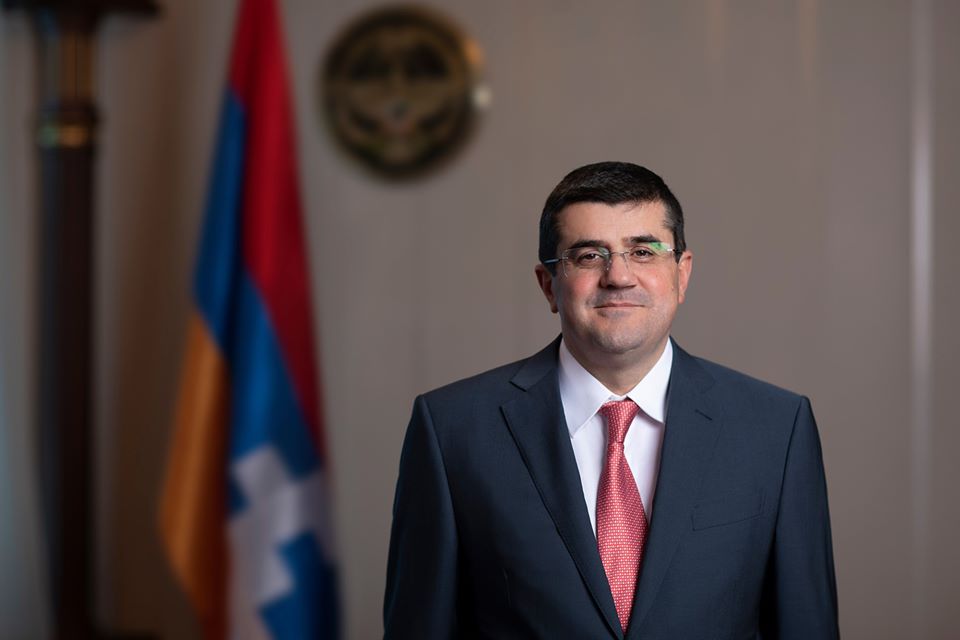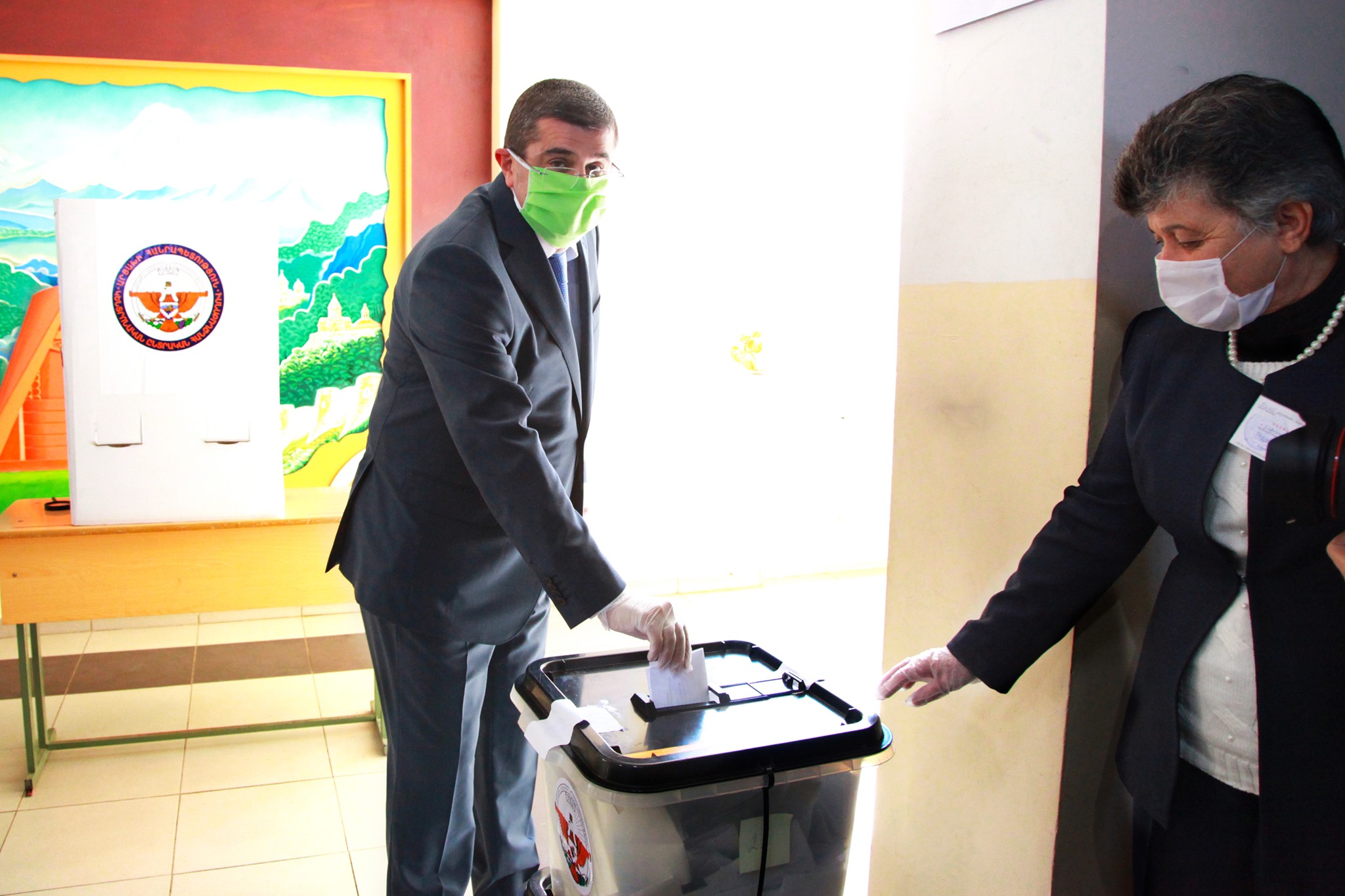
YEREVAN—Arayik Harutyunyan has been declared President-Elect of the Republic of Artsakh (Nagorno-Karabakh) following a decisive victory in the second round of voting on Tuesday. Harutyunyan, a 46-year-old businessman and native of Artsakh, had previously served a decade-long term as Prime Minister of the de facto republic between 2007 and 2017.
The election, which had been scheduled for March, gained an aura of controversy when authorities in Stepanakert refused to postpone voting amid the global COVID-19 pandemic even as authorities in Armenia cancelled a planned constitutional referendum for early April. The first round of voting went on ahead as scheduled on March 31st, while authorities there promised to take every precaution to minimize contagion risk.
Voters, who were expected to cast ballots for both parliamentary and presidential candidates simultaneously, showed up in large numbers at the polls. Artsakh’s Central Election Commission (CEC) announced a turnout of over 73 percent for the first round of voting in which Harutyunyan came out on top with 49.3 percent of the vote—just shy of the 50 percent required to avoid a runoff against his nearest rival Masis Mayilyan with 26.4 percent.

Harutyunyan’s Free Fatherland party also won the largest representation in Artsakh’s National Assembly with 40 percent or 16 of the 33 allocated seats — again just shy of a working majority. Other parties include former Defense Minister Samvel Babayan’s Justice Party with 7.9 percent, the Armenian Revolutionary Federation (ARF) with 6.4 percent and the Democratic Party with 5.8 percent.
While the election was strongly condemned by Azerbaijan and declared illegitimate by several international bodies, it has been hailed as free and fair by both the Artsakh and Armenian governments. “The unprecedented participation numbers and variety in the candidate roster to choose from is a compelling sign of the further strengthening of Artsakh’s democratic institutions,” said Armenian Prime Minister Nikol Pashinyan. “The fact that opposition, rather than pro-government parties make up the second and third largest factions in Parliament also attest to this.”
For an election in the post-Soviet space, this result was not initially contested by losing candidates. However, travel restrictions and other disruptions caused by the ongoing global COVID-19 pandemic prevented the large-scale deployment of independent observers from Armenia and abroad to validate the results. Still, voting violations and cases of suspected vote buying schemes in favor of Harutyunyan have been reported to the CEC.
Authorities in Stepanakert then faced even more public outcry for pushing on with a second round of voting despite the emergence of five new confirmed COVID-19 cases stemming from people who had voted in the previous round. Both Mayilyan and General Vitaly Balasanyan publicly appealed for a postponement of the second round of voting following the confirmed cases. However, first responders implemented mass testing in the region and all additional cases came back negative. Turnout in the second round was unsurprisingly lower than the previous one at only 45 percent, since Mayilyan had asked his supporters to avoid the polling stations.
While both frontrunners and the third place runner up Balasanyan had previously held positions in the government of outgoing President Bako Sahakyan, none received his endorsement. Major General Balasanyan, who has garnered a reputation as a controversial, hawkish and agitating figure in Artsakh politics since retiring from the military, had recently gotten into public spats with Prime Minister Pashinyan as well. However, Pashinyan has a good working relationship with both Harutyunyan and Mayilyan.
Tuesday’s vote is the first since the Republic of Artsakh amended its constitution in 2017 in favor of moving from a semi-presidential system to a fully presidential one (at a time when Armenia did the exact opposite). Then-President Bako Sahakyan’s second and final term was thus controversially extended by two years until a new election could be held.
“We’re moving forward. It is our duty to build a prosperous future for our people,” Harutyunyan said in his first address to the people of Artsakh since winning the election, “I wish us all success.”


Hi Raffi,
Thank you for all the great reporting from Armenia!
Your articles provide an in-depth information about Armenia and Artsakh!
We love reading your reports.
Keep them coming!
All the best from Woodinville , Washington.
Keep safe out there!
Kearsley family